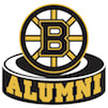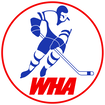|
"Cowboy" Bill Flett was a hard-livin', hard-shootin' cowboy, who was an an original LA King and then a Stanley Cup champion with the Philadelphia Flyers. He also made stops with the Toronto Maple Leafs, Atlanta Flames and re-found fame in the WHA with the Edmonton Oilers. The legend of Cowboy Flett begins on July 21, 1943 Vermillion, ALTA -- a small hamlet in central Alberta about two hours east of Edmonton. Flett handled cattle at a young age and built his muscles while working on a farm. He had been a calf-roper in and around the Calgary area, and was known to participate in rodeos with regularity. Meanwhile,Flett’s hockey playing skills were also developing and he was selected to play Junior A Hockey with the Melville Millionaires in Melville, Saskatchewan. Eventually, he was signed by the Toronto Maple Leafs organization and assigned to the Western League’s Victoria Maple Leafs for the 1964-65 season. He’d eventually labor through six minor league seasons, but had little hope of lassoing an NHL roster spot in a six-team NHL. But as with many minor league players of that era, expansion came to the rescue as the NHL doubled in size to 12 TEAMS IN 1967. The Los Angeles Kings selected the 6-1 215 lb Flett in the 18th round of the expansion draft and he made an immediate impact in LA, scoring a team-leading 26 goals in 73 games and while being named “The Sporting News” NHL West Division Rookie of the Year. Now that he had become a fixture on the Kings, though, Flett’s rodeo activities drew the ire of team owner Jack Kent Cooke, who threatened to fine Flett $1,000 for each rodeo he appeared in. Flett acquiesced and hung up his chaps for good. The hard-shooting Flett was a mainstay for those early Kings teams. He represented the Kings in the 1971 NHL All Star Game and set up Bobby Hull’s game-winning goal as the West defeated the East 2-1. Within a year, however, Flett had fallen out of favor in LA and was traded to the Philadelphia Flyers as part of an eight-player deal. Flett reflected on his situation in LA: : “When Hal Laycoe took over as Kings Coach (during the 1971-72 season) he wouldn’t play me. I might as well have been in Siberia.” It wasn't Siberia, but still Flett Balked at the trade to Philadelphia and instead booked a flight to Hawaii … Luckily, teammate Eddie Joyal convinced him that a paycheck in Philly was better than a suspension in Maui. #philadelphiaflyers. #edmontonoilers. #hockeyhistory For Flett, “The City of Brotherly Love” proved to be a much better home than Siberia, Hawaii -- or LA for that matter -- as he finished out the ’71-’72 season with 11 goals in 31 games while playing on the Flyers top line with future hall of Famers Bobby Clarke and Bill Barber.. With the fledgling World Hockey Association now on the scene, Flett nearly set off a full scale war between the leagues when he and Dave Schultz inked pacts with the WHA New York Raiders. Ultimately, the Flyers successfully contested these contracts in court and boosted the salaries of both players to entice them to stay in Philly. It was at the press conference to announce his new contract that Flett unveiled the beard that would become his trademark. In that era, no players sported a full beard and Flett’s facial growth combined with his long hair cemented his image as hockey’s Cowboy on skates. The new look Flett embarked on a career year in 1972-73, scoring 43 goals, the 5th highest total in the NHL. However, Flett’s play would fall off sharply during the 1973-74 season as his production dropped to a mere 17 goals. In addition, he failed to score a goal in 17 post season games. Despite Flett’s struggles, the Flyers won the Stanley Cup. But if they were going to repeat in 1974-75, they were willing to do it without Cowboy Flett. The fun-loving Cowboy admittedly would never turn down a drink and his hard-partying lifestyle -- coupled with his falling production -- made him expendable. While the Flyers battled their way to another Stanley Cup in 1974-75, Flett endured a miserable 15-goal season in Toronto and was waived in the off season. He was claimed by the Atlanta Flames and rebounded with a 23-goal output in 1975-76 but by the midpoint of the 76-77 season, Flett was benched and his career appeared to be near its end. At this point World Hockey Association re-entered Flett’s hockey life and in a rare intra league deal, the Flames sold the 33-year old Flett to the Edmonton Oilers. Flett and the Oilers were part of the NHL’s 1979 expansion, but after playing just 20 NHL games, it was time for Cowboy to ride off into the sunset. The physical damage years brought on by decades of alcohol abuse proved to be irreversible . Flett suffered from liver failure in May of 1999 and, although he received a liver transplant, his body rejected it and he would pass away in July 1999 at just 55 years old.
0 Comments
Leave a Reply. |
Archives
March 2023
Categories
All
|
Welcome to the Pro Hockey Alumni Podcast






 RSS Feed
RSS Feed
